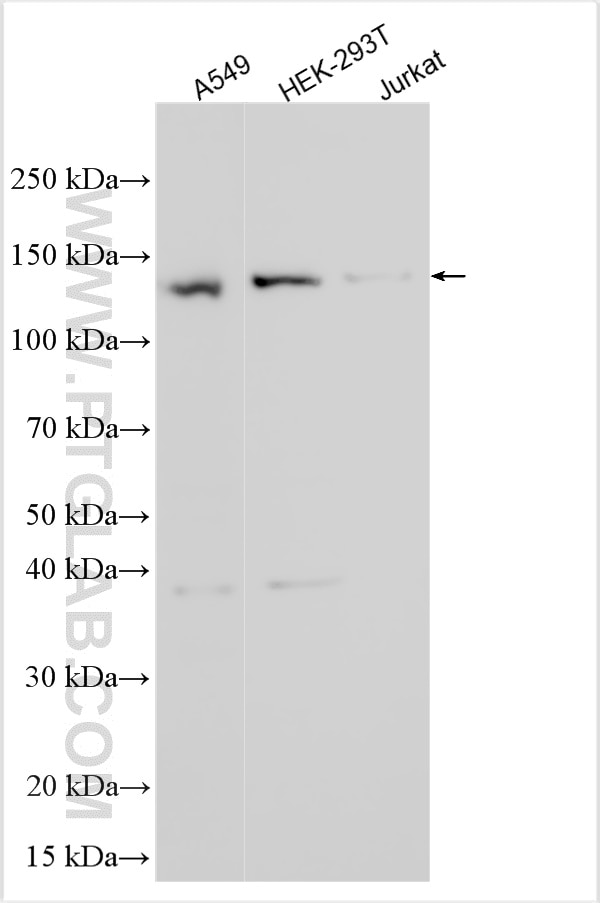Tested Applications
| Positive WB detected in | A549 cells, HEK-293T cells, Jurkat cells |
Recommended dilution
| Application | Dilution |
|---|---|
| Western Blot (WB) | WB : 1:1000-1:4000 |
| It is recommended that this reagent should be titrated in each testing system to obtain optimal results. | |
| Sample-dependent, Check data in validation data gallery. | |
Product Information
14110-1-AP targets POLG in WB, ELISA applications and shows reactivity with human samples.
| Tested Reactivity | human |
| Host / Isotype | Rabbit / IgG |
| Class | Polyclonal |
| Type | Antibody |
| Immunogen | POLG fusion protein Ag5256 Predict reactive species |
| Full Name | polymerase (DNA directed), gamma |
| Calculated Molecular Weight | 140 kDa |
| Observed Molecular Weight | 130-150 kDa |
| GenBank Accession Number | BC042571 |
| Gene Symbol | POLG |
| Gene ID (NCBI) | 5428 |
| RRID | AB_3669178 |
| Conjugate | Unconjugated |
| Form | Liquid |
| Purification Method | Antigen affinity purification |
| UNIPROT ID | P54098 |
| Storage Buffer | PBS with 0.02% sodium azide and 50% glycerol , pH 7.3 |
| Storage Conditions | Store at -20°C. Stable for one year after shipment. Aliquoting is unnecessary for -20oC storage. 20ul sizes contain 0.1% BSA. |
Background Information
POLG is the catalytic subunit of DNA polymerase gamma solely responsible for the replication of mitochondrial DNA (mtDNA). POLG replicates both heavy and light strands of the circular mtDNA genome using a single-stranded DNA template, RNA primers, and the four deoxyribonucleoside triphosphates as substrates (PMID:11477093; 11897778; 15917273; 19837034; 9558343).
Protocols
| Product Specific Protocols | |
|---|---|
| WB protocol for POLG antibody 14110-1-AP | Download protocol |
| Standard Protocols | |
|---|---|
| Click here to view our Standard Protocols |



